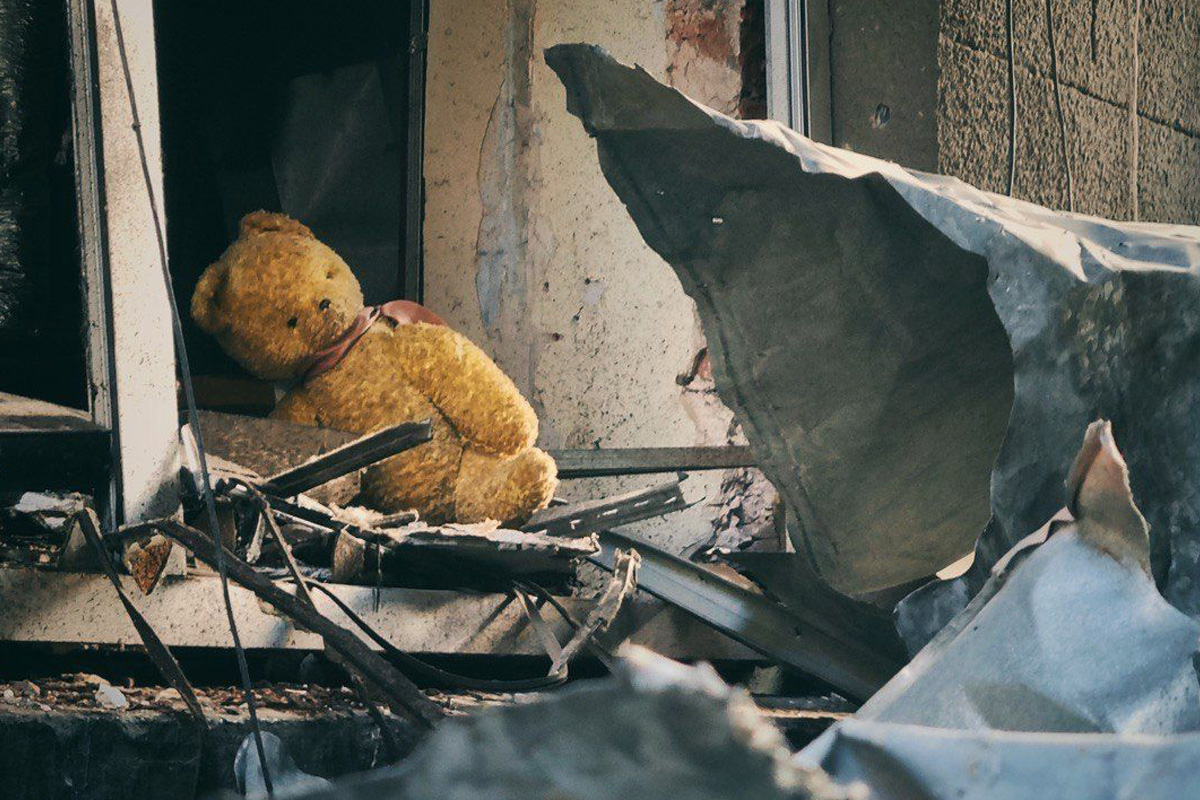Russia War Crimes Diary – Ukraine edition 20
As Ukraine prepares to launch its much anticipated counter-offensive against Russian forces, a fresh wave of Russian attacks hit the eastern city of Bahmut, where Moscow’s troops are accused of deploying illegal phosphorus bombs.
Meanwhile, the Ukrainian capital, Kyiv, is being frequently targeted by Russian attacks, with one such strike hitting the capital shortly before European Commission President Ursula Von der Leyen visited Kyiv on May 9, which was the fifth such attack this month.
In the background of these attacks, Russian President Vladimir Putin presided over a parade to commemorate the end of World War II, despite launching the continent’s fiercest full-scale land war since. The United Nations estimates that 8,791 Ukrainian civilians have so far been killed since the war started.
But Journalists, volunteers, law enforcement officials, and other organizations continue to document potential war crimes and collect evidence in the hope that an international tribunal will bring those responsible to justice.
Former Russian prisoners confess to brutal killings in Ukraine
Gulagu.net published an article in which two mercenaries from Russia’s Wagner Group, former prisoners who were pardoned by Putin and recruited by Wagner Group leader Yevgeny Prigozhin, confess to mass shootings of civilians in Soledar and Bakhmut.
The alleged killers spoke of how they shot and killed more than 20 Ukrainian children and teenagers, blew up a pit containing more than 50 wounded prisoners, and liquidated residential buildings killing the people, including children, inside, according to journalists at Suspilne.
“He was screaming, he was a little kid, you know. He was five or six years old, and I fired (…) There was an order to eliminate everyone,” one of the mercenaries said. Find the full material here.
Revealed: Circumstances in which journalist was killed by Russian missile
Journalists at Radio Liberty released a documentary commemorating the death of their colleague, producer and journalist Vira Hyrych, who was killed in a missile attack on Kyiv on April 28 last year.
The film reveals in detail the circumstances of the Russian bombing of the Ukrainian capital that day, the airfield from which the plane took off, its model, and the type of missile that was launched.
The journalists also gave the names of the Russian commanders of the aerial bombardment division involved in the bombing, as well as the names of the employees of the unit in the main control center of the Russian army, which programs the flight path of missiles of this type. You can watch the documentary film here
Illegal detention, torture of Ukrainian civilians by Russian forces
New evidence of the mistreatment of civilians during the occupation of Kherson between March and November last year has been revealed by Human Rights Watch.
The researchers interviewed numerous victims, each story pointing to a potential war crime allegedly committed by Russian forces. Victims and their family members spoke of torture and other mistreatment that occurred in a pre-trial detention center. Former detainees consistently reported similar forms of abuse, including severe beatings with batons, brutal electrical shocks, and threats of mutilation and death.
“They started hitting me on the legs, on the ankles … They said: ‘We will rape your girlfriend in front of your eyes and cut off your balls’,” recalled one former detainee. You can read the full article, here.
Lives destroyed by unguided Russian bombs
In the early weeks after Russian invaded last year, Moscow’s forces aerial bombed Ukraine’s northern city of Chernihiv, which killed least 47 people, many of whom died in the streets, according to journalists at Pravda.
The attacks, in which people died as they went about their daily business, such as quieting up outside a pharmacy, also left more than a hundred locals homeless. The journalist made a story about 6 families who survived the bombing but lost their entire lives.
A emergency dispatcher remembers people incessantly calling for help, dozens of people screaming and begging for a lifeline. Pravda journalists tell the stories of six Ukrainians who were affected by the Russian attack, here
Edited by Stephen McGrath
Photo credit: Denys Krasylnikov (Harkov)


